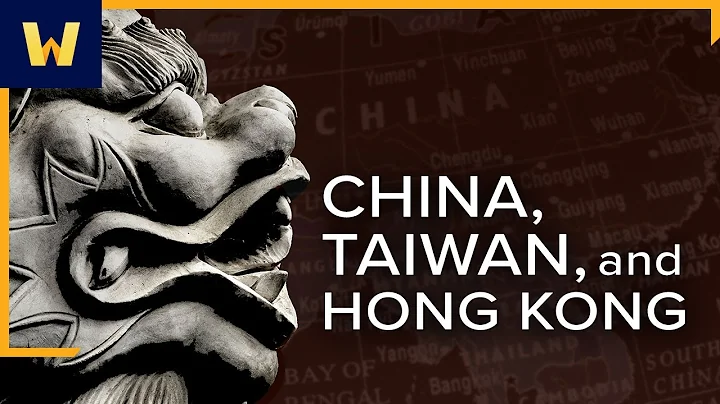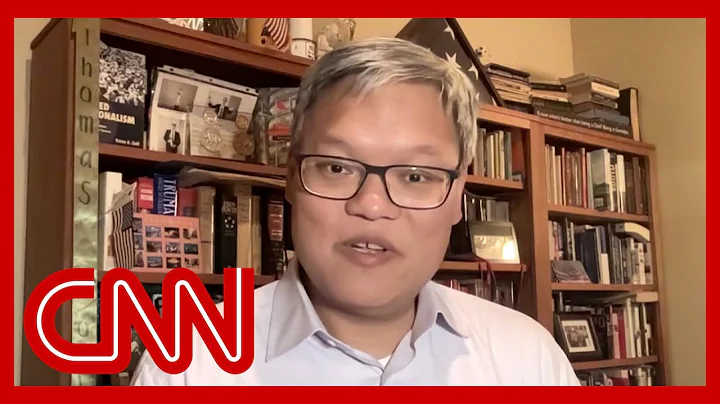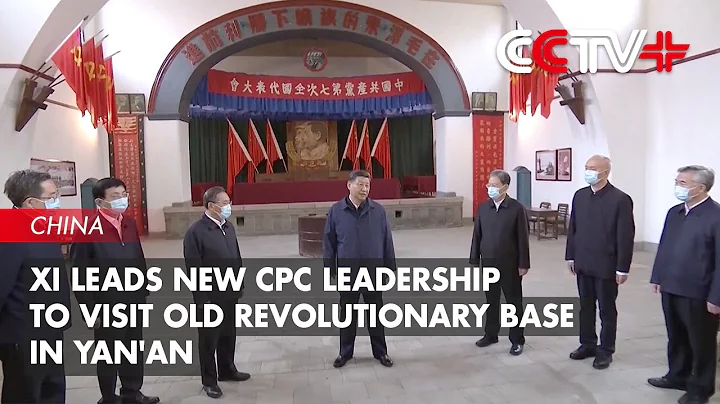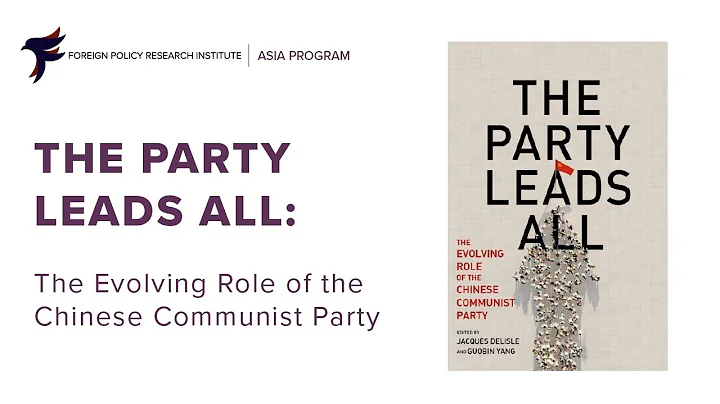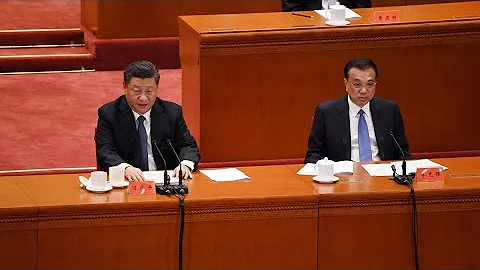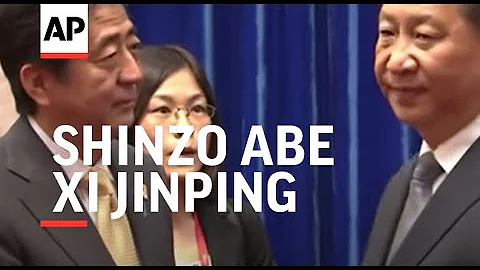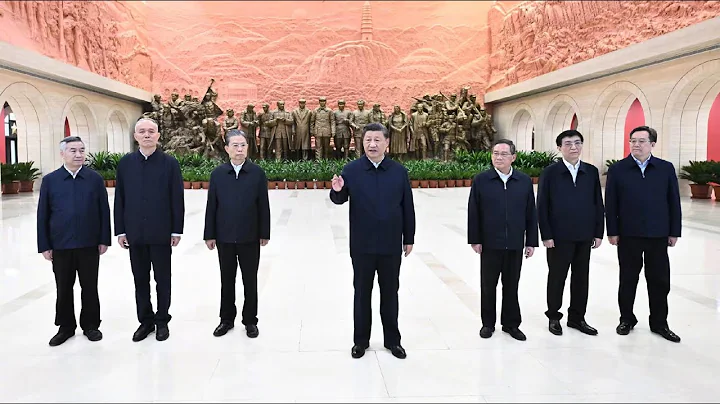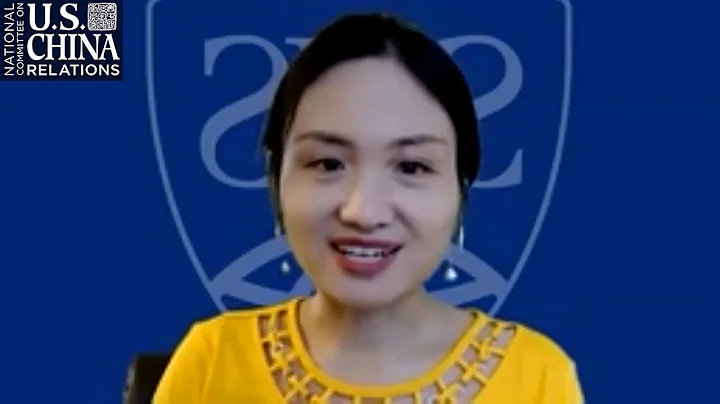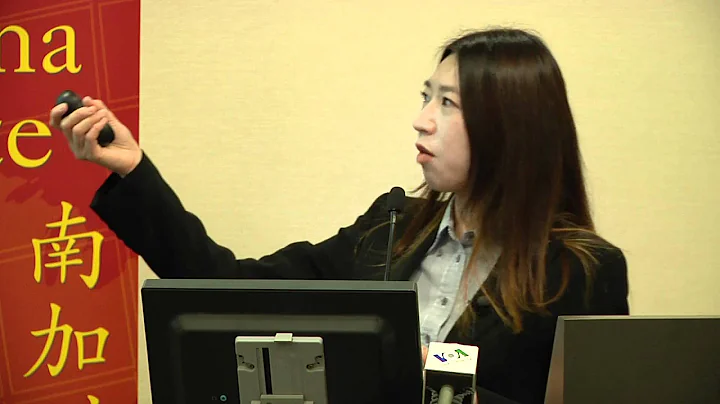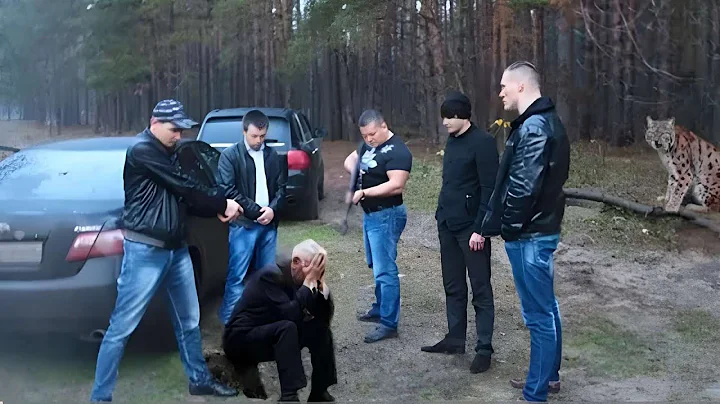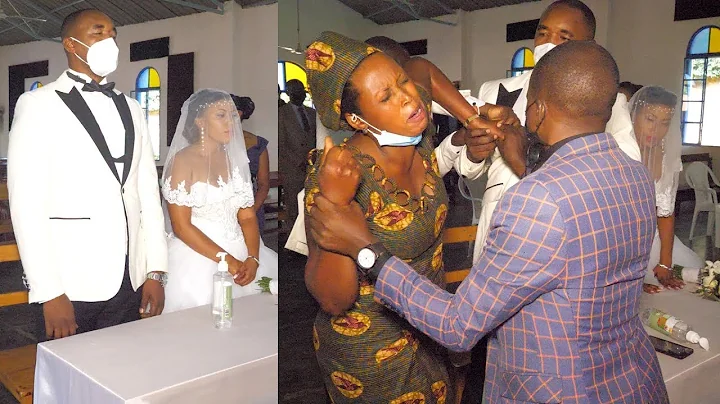文/Liu Minggang
Chen Yun is an important member of the first-generation central leadership group and enjoys a high reputation throughout the party. From the end of 1937 to September 1945, he worked and lived in Yan'an, China for nearly eight years. During the unforgettable years in Yan'an, Chen Yun successively presided over the work of the Central Organization Department of the CPC Central Committee and the Northwest Financial and Economic Office of the CPC Central Committee, making great contributions to party building and financial work.
The Central Organization Department wants to face the whole country
On November 29, 1937, Chen Yun arrived in Yan'an from Xinjiang. He arrived in Yan'an on a Soviet plane transporting Wang Ming and Kang Sheng back to China.
A simple welcome ceremony was held at the simple airport. Almost all the CCP leaders in Yan'an came. Chen Yun was very excited to see his comrades who had been separated for two years.
Chen Yun participated in the Long March , but did not complete the journey. At the foot of the snow-capped mountains, he was dispatched by the central government and returned to Shanghai alone to be responsible for restoring the party organization of the Communist Party of China and getting in touch with the Communist International. From then on, he suddenly "disappeared". After leaving the Red Army team, Chen Yun disguised himself as a debt collector and broke through the enemy's blockade to Chengdu, then went to Shanghai, then to Moscow, and participated in the Chinese Communist Party's delegation to the Comintern. There, he wrote the book "Records of His Experience with the Army on the Westward Journey", which was the first important document to report the Red Army's Long March to the outside world. Later, he and Teng Daiyuan went to Xingxingxia at the junction of Gansu and Xinjiang to join the left detachment of the West Route Army led by Li Xiannian.
Chen Yun also established the first air force led by the Communist Party of China in Xinjiang.
At the welcome meeting, Mao Zedong gave a welcome speech. He said: "Today, Marx sent us heavenly soldiers and heavenly generals." Then, he introduced the three people who had just got off the plane one by one, and gave them very high praise.

◆Chen Yun
After Chen Yun returned to Yan'an, as a member of the Political Bureau of the CPC Central Committee, he attended the meeting of the Political Bureau of the CPC Central Committee from December 9 to 14, 1937. This meeting reorganized the Secretariat of the CPC Central Committee, consisting of Zhang Wentian, Mao Zedong, Wang Ming, Kang Sheng, and Chen Yun. The meeting also decided that Chen Yun would succeed Bogu as director of the Organization Department of the Central Committee of the Communist Party of China.
html During the ten-year civil war, the power of the Communist Party of China was greatly weakened due to the rule of the "Left" wrong line. After the July 7th Incident, the war of resistance inside and outside the Great Wall was in full swing. However, the Central Organization Department had only more than 30,000 party members nationwide, which obviously could not meet the needs of a cruel war. In order to shoulder the great mission of leading the people of the country in the war of resistance, we must vigorously develop the party organization. Based on this situation, Chen Yun put forward the proposal that the Central Organization Department should be oriented to the whole country when he took office.
Chen Yun believes that in the party organizational work, the Central Organization Department should not only target Yan'an and the Shaanxi-Gansu-Ningxia Border Region, but also target all base areas behind enemy lines across the country, target party organizations in Kuomintang-controlled areas, and target party organizations in enemy-occupied areas. He asked the Central Organization Department to establish corresponding institutions and identify personnel to try to understand the work of various party organizations in order to formulate different policies and provide targeted leadership.
This strategically significant proposal was immediately approved by the central government and became the guideline of the Central Organization Department.
Chen Yun also made timely suggestions and assisted the central government in formulating a series of guidelines and policies applicable to different regions.
Regarding the base areas, Chen Yun proposed the policy of "development, consolidation, further development, and further consolidation", advocating that we should focus on both the quantity and quality of party members.
Regarding the Kuomintang-controlled areas, Chen Yun proposed to implement the policy of "being lean and concealed, lying in wait for a long time, accumulating strength, and waiting for the opportunity" and "the party is small inside and the party is large outside". It is necessary to strengthen the connection between the party and the masses and learn to protect oneself. .
Regarding enemy-occupied areas, Chen Yun creatively proposed the new policy of "in addition to being capable, the leading organs should be placed outside." That is, the leading organs should be placed closer to the base area and commanded from outside. Chen Yun said: "When I worked in the white area in the past, once the leadership agency was destroyed, it was completely ruined and no one could be found. How can this be done? It must be changed!" The idea of "putting the leadership agency outside", It is suitable for the situation in enemy-occupied areas, which not only facilitates the preservation of our strength, but also enables us to do a good job in the party's work in enemy-occupied areas in a timely manner. Later, after defeating the Japanese invaders, Chiang Kai-shek openly carried out anti-communism, and this policy was continued to be implemented.
The above-mentioned practical and highly operational principles and policies have greatly mobilized the enthusiasm of party organizations at all levels and effectively promoted the rapid development of party organizations. By the time the Seventh National Congress of the Communist Party of China was held in 1945, the number of party members had grown from more than 30,000 in 1937 to 1.21 million. The Communist Party of China had truly become a major mass party and the mainstay in leading the Chinese people in the War of Resistance Against Japan. In this process, Chen Yun's outstanding contributions have been fully recognized by the Party Central Committee and highly praised by organizations at all levels and party members.
Party classes in the bridal chamber
Chen Yun and Yu Ruomu met and fell in love in Yan'an.
Around the end of 1937 or the beginning of 1938, Chen Yun nosebleed relapsed. The Organization Department of the Central Committee decided to find someone from the girls' team of Northern Shaanxi Public School to take charge of nursing work. After research by the party branch, they believed that Yu Ruomu was a party member, had a clear history, and was politically reliable, making her a suitable candidate, so they recommended her.
Yu Ruomu took care of Chen Yun, just putting drops into his nose on time, and there was nothing more to do. Chen Yun couldn't do much work because the doctor asked him to rest, so the two of them often chatted together. Sometimes, Chen Yun asked Yu Ruomu to sing to him, and she sang some revolutionary songs generously. After getting along for a long time, they developed feelings for each other and their relationship gradually became closer. One day, Chen Yun said to Ruomu: "I am an honest person and I always do things honestly. You are also an honest person. Honest people and honest people can get along."
In March 1938, they were happily married. That year, Chen Yun was 33 years old and Yu Ruomu was 19 years old.
Their wedding was as simple as the yellow earth. Chen Yun only spent one yuan to buy some candies and peanuts, and invited comrades from the Organization Department of the Central Committee to make the wedding fun. Afterwards, the news spread, and someone asked Chen Yun to treat him. Chen Yun still had some money on hand and could afford the invitation, but he didn't want to make a show, so he didn't invite him.

◆In 1938, Chen Yun and Yu Ruomu got married in Yan'an.
Both parties are very satisfied with their union. Chen Yun wrote in a letter to his eldest brother Yu Ruomu: "We are very suitable in terms of politics and personality. The only age difference is too far. I am 35 years old this year." Yu Ruomu wrote in the letter: "Although he He is 14 years older than me, but I am very satisfied with my marriage. He is a very reliable and loyal person, he is responsible, never casual, has a good temper, and handles problems rationally rather than emotionally.”
After marriage. Soon, Chen Yun dedicated three nights to lecture Yu Ruomu on party history.
The kerosene lamp shines on the snow-white walls of the cave dwelling, and the red characters on the window paper shine with red light.
There is a small kang table on the kang of the cave dwelling. Chen Yun is sitting on one side of the kang table, and his bride is sitting on the other side.
Because Chen Yun is very familiar with and has a deep understanding of the history of the Communist Party of China, he talks about it with great familiarity. He talked about the losses caused by putschism to the party after the failure of the great revolution; he talked about the threat to the Party Central Committee from the rebellion of Xiang Zhongfa and Gu Shunzhang; he talked about the failure of the fifth counter-campaign against "encirclement and suppression" in the Central Soviet Area; he talked about Chairman Mao's rescue of the party and the Red Army. etc. Yu Ruomu is serious and focused. Although she is not a new party member, this is the first time she has received party history education in such a systematic way, and the lectures are so vivid and profound.She heard many unheard stories of the struggle against the enemy and learned about many little-known struggles within the party, which further deepened her understanding of the nature of the party and strengthened her belief in dedicating herself to communism.
A person who likes to joke originally wanted to eavesdrop on the whispers in the wedding room, but what he didn't expect was a serious party history lesson. He was very surprised. Therefore, "Comrade Chen Yun gave Yu Ruomu party lessons in the bridal chamber" became a favorite story among the cadres of the Central Organization Department.
Recruiting scholars from all over the world and accepting people from all over the world
During the Anti-Japanese War, the Communist Party of China adhered to the policy of unity and progress and the line of all-out resistance, attracting a large number of people of insight to the holy land of Yan'an. Faced with such a favorable situation, Chen Yun promptly proposed the idea of recruiting scholars from all over the world and accepting people from all over the world. How can we "recruit" and "accept" scholars from all over the world? Chen Yun responded in a speech titled "On Cadre Policy" delivered at Yan'an Anti-Japanese Military and Political University. He said:
"When I talk about cadre policy now, I just want to explain it in twelve words, divided into four questions: First , Understand people; second, be generous; third, use it well; fourth, care for people."
Chen Yun particularly emphasized the need to absorb a large number of intellectuals and proposed to "rob" intellectuals. He said: "Now, everyone is robbing intellectuals, the Japanese imperialists are robbing them, the Kuomintang is robbing them, and we are robbing them too. If we are too slow to robbing them, they will be gone. If we put all kinds of demands for saving China, for resisting war, for revolution, If the intellectuals have grabbed it, we cannot say that the world is completely ours, but at least one third of it is ours." He also said: "Don't miss this opportunity again, otherwise you will regret it too late."

◆Chen Yun during the Yan'an period.
Chen Yun's discussions had a significant guiding role at the time. At the same time, he also cared for intellectuals with a passionate heart.
One day in 1939, Zhou Enlai, secretary of the Southern Bureau, telegraphed that the famous Chongqing surgeon He Mu and his writer wife Chen Xuezhao were coming to Yan'an and asked Chen Yun to make arrangements. Chen Yun attaches great importance to this. After the two arrived in Yan'an, he personally visited them, arranged work for their professional counterparts, and took care of them as much as possible in their daily lives. Chen Yun often took the time to talk to them and encourage them to work hard. When
first came here, the two of them were quite motivated, and Chen Yun was very happy about it. However, within half a year, the couple had an emotional crisis, sued each other, and started arguing for divorce. Chen Yun took the trouble to mediate and persuaded her, saying: "You can't divorce just because you want to divorce. You have to make do with it for a year."
After doing some work, the two of them did not mention divorce, but because they were not used to life, they asked to return home. Chongqing. Chen Yun talked with them again, and persuaded them to stay, and said: "We welcome you two when you come, and if you must leave, we will also see you off. If you have any difficulties after leaving, if you are willing to come back, we will still welcome you."
二He still left, but came back in 1941. Chen Yun met them again, expressed his heartfelt welcome, and arranged work for them again as promised. This small incident fully reflects the Communist Party's trust, enthusiasm and care for intellectuals, and has become a favorite story among intellectuals.
There is another thing that can also reflect Chen Yun's care and love for intellectuals. Fu Lianqi from the Central Hospital asked to join the Party, but no one was willing to be his introducer. Fu Lianxi was originally a church doctor in Zhangzhou, Fujian. When the Red Army invaded Zhangzhou, he joined the Red Army. After going through countless hardships and hardships, he gradually grew from a small intellectual to a determined Red Army soldier. After the Long March arrived in Yan'an, he was assigned to work in the Central Hospital. His main task was to treat the central leaders, and he also served as Mao Zedong's health doctor. Fu Lianzhen had good medical skills and was conscientious in treating patients. However, when dealing with others, he seemed a bit old-fashioned and spoke stiffly. Some comrades at the Central Hospital couldn't stand it, so they refused to introduce him to the party.
joined the party and was stuck.Fu Lianxi, who had gone through thousands of mountains and rivers for the revolution and rushed through the hail of bullets, had great fluctuations in his thoughts and emotions after learning about this.
Chen Yun listened to the report and took it very seriously. He believed that this matter was not only related to Fu Lianzhen's personal political progress, but also related to whether the policy on cadres and intellectuals was conscientiously implemented, so he took matters into his own hands. He talked with Fu Lianqi many times, pointed out problems and helped him overcome his shortcomings; at the same time, he also exchanged opinions with comrades of the Party branch of the Central Hospital many times. He said: "You must look at his mainstream when looking at people. Politically Fu Lianqi is willing to work for communism." He has a sincere attitude towards fighting and following the Communist Party. We cannot turn him away. He has withstood the test in the arduous Long March and performed well. He is serious and responsible in his work. I think he meets the requirements of a party member. There are indeed some shortcomings in his style, which can be criticized and educated, and he should also be helped." Chen Yun looked around everyone and continued with a smile: "If there are really no comrades willing to be Fu Lianxin's introducer to join the party, then let me and Wang Heshou. Comrades will do it."
As a result, Chen Yun and Wang Heshou actually became Fu's party recruiters, but it was not that no one was willing to do it. On the contrary, after exchanging ideas, the comrades of the Central Hospital not only unified their understanding, but also unanimously proposed , hoping that the two leaders of the Organization Department, Chen Yun and Wang Heshou, would be the introducers and invite them to participate in the branch meeting to discuss Fu Lianxin's joining the party. As a result, after discussion and approval at the branch meeting, Fu Lianchen finally realized his lofty political ideals.
Chen Yun not only insisted on acting in accordance with the provisions of the Party Constitution, but also treated intellectuals sincerely, which deeply educated the comrades of the Central Hospital and Fu Lianxin himself.
Realistic review is the real strictness
At that time, a large number of young people and intellectuals flocked to Yan'an from all over the country. Faced with this situation, some people worry that it is too complicated and that it is too complicated. Chen Yun believes that "complexity" is a good thing. He once looked back like this: "I remember opening a school in Shanghai in 1932 to train worker cadres. The lectures only lasted six days and there were only six students. Today we have anti-big Thousands of students, plus Shaanxi Public School , Lu Yi, and the Party School, there are more than 10,000 students in Yan'an. Compared with 10,000 students, what is the difference? So I say that in the past ten years, people's hearts have been growing. No matter men, women or children, they were not afraid of hardships and traveled thousands of miles to come to Yan'an. The Anti-Japanese University announced in Wuhan that it would no longer enroll students. It was of no use at all. They still came in an endless stream. There were no cars and they had to walk on two legs. Men and women came from a few places. People from thousands of miles away came. Mainly revolutionary youths, but also university professors, engineers, and a seventy-five-year-old old man also came. People from all parties and factions, journalists, and young people also came. Organized tour groups, etc. These people may not have food to eat outside, but they want to come to Yan'an to eat Xiaomi . From this situation, complexity is complicated, but is it better to be complicated or simple? In the past, there were only six students, but it was very simple. Today, there are all kinds of people, and it is very complicated. I think if you want to do big things, you will inevitably encounter complicated situations. "

◆Chen Yun and Li Fuchun took a photo in Yan'an.
For the large number of people pouring into Yan'an, the first thing to do is to conduct censorship. At that time, it was extremely difficult to review cadres. First of all, it is very difficult to investigate and collect evidence. At that time, the country was divided into several major areas, such as enemy-occupied areas, Kuomintang-controlled areas, base areas, etc. The big cities were occupied by the Japanese army, making it impossible to investigate and collect evidence; the underground party activities in the Kuomintang-controlled areas were restricted, making it difficult to investigate; the base areas were divided into several areas, making it difficult to send people to investigate. Secondly, the archives of party members are also very simple. Usually a team of people comes from the rear area, and there is only a general list and nothing else. Under the circumstances at that time, it was unrealistic to require local party organizations to provide detailed archival materials. Furthermore, many party members have lost their organizational connections and do not even have a letter of introduction.
Chen Yun attaches great importance to the work of reviewing cadres.He believes that it is necessary to review cadres, but we must be cautious and seek truth from facts. He has a famous saying: "A review that seeks truth from facts is the real strictness."
Chen Yun started from reality and put forward the basic idea of reviewing cadres, which is to arrange study or work first, slowly learn from it, and solve problems in the base area as much as possible . For cadres who enter Yan'an and the Shaanxi-Gansu-Ningxia Border Region, they must first arrange study or work according to different situations, and observe and test them during work and study; if they perform well and can find a certifier, and with sufficient evidence, they can restore their party membership; if they perform well but cannot find a certifier, they can be reinstated; If the candidate has proof, he can rejoin the party; otherwise, he will not be able to rejoin the party for the time being. Whether he can join the party in the future will mainly depend on his performance.
Chen Yun's approach of seeking truth from facts has achieved very good results, and the conclusions he has drawn can stand the test of time. However, these practices were later opposed by Kang Sheng and others, who insisted that the Central Organization Department had gone to the right on the issue of reviewing cadres, allowing spies to take advantage of the loopholes, and made the Communist Party "infested with spies." He launched a "rescue campaign" in Yan'an and created a large number of unjust, false and wrong cases. Later, we had to put a lot of effort into screening, and as a result, almost all those who were "rescued" were rehabilitated.
As the Organization Minister of the Central Committee of the Communist Party of China, Chen Yun has to personally deal with many complex cadre historical issues.
One day, Chen Yun received two young men, a man and a woman, in the cave where he worked. The man's name is Ding Xiu, who served as deputy secretary of the Anshan Municipal Committee of the Communist Party of China after liberation; the woman is a student from the High School Affiliated to Peking Women's Normal University, and they were both activists who emerged during the December 9 Movement. When they came to Yan'an, which they had longed for, and saw a new atmosphere, they were extremely excited and jumped to Chen Yun's office.
Chen Yun asked them to sit down, and then asked: "Do you know why you are brought back?"
"Of course you are here to study." They answered without thinking.
Chen Yun told them bluntly: "Some people say that you are Trotskyists, and you will be transferred back to review you." Chen Yun believes that the political and historical issues of party members must be taken seriously and they must be made clear to themselves head-on.
After hearing this, the two young men were frightened. One hurriedly complained, and the other started to cry.
Chen Yun comforted them: "Don't cry, believe in the party, things will be found out. I am responsible for clarifying your problems."
After sending the two young men away, Chen Yun began an investigation. According to the witnesses provided by the two, Talk to people one by one.
He asked his secretary Liu Jiadong: "You went to school with Ding Xiu. Based on what you know about him, would he be a Trotskyist?"
"Ding Xiu was my old senior when I was in school in Peking. He was involved in the December 9th Movement." He performed well in the exam, how could he be a Trotskyist?"
After hearing this, Chen Yun said seriously: "Hurry up to the guest house, talk to them, and do more ideological work to avoid accidents."
Passed. Two weeks later, Chen Yun talked to them again and said: "The problem has been clarified, and there is nothing like that."
The two young people did not expect to find out so quickly. They were very excited and repeatedly expressed their gratitude to the party organization and Chen Yun. Comrade. They wiped away their tears and went to school happily.
Decades later, these two comrades were still excited when recalling the past, saying: "At the beginning, if Comrade Chen Yun had not personally reviewed it, the issue would not have been clarified so quickly. If it fell into the hands of Kang Sheng, this life would be over." These words expressed the feelings of the old comrades who came from Yan'an.
Popular "Part-time Professor"
After the failure of the Great Revolution, Chen Yun often thought about this question: Chen Duxiu and Qu Qiubai were both knowledgeable people, and Li Lisan and Wang Ming read many books. Why did these people make mistakes? He thought hard. , and never got a satisfactory answer. After arriving in Yan'an, Chen Yun asked Mao Zedong three times for advice. Mao Zedong said that the main reason is that the level of Marxism-Leninism is not high and the thinking and methods are wrong.Mao Zedong also said that in order to avoid making fewer mistakes, one should read some philosophical works and learn some materialist dialectics .
According to Mao Zedong's advice, Chen Yun organized a study group in the Central Organization Department to study philosophy with concentration and persisted for five years. In his studies, Chen Yun paid special attention to reading the original works. He said: "You must read the existing major textbooks one by one, neither slack off nor rush, step by step." He also said: "Read to understand, don't understand it half-understood. This is the only way to achieve mastery. "Steps." He emphasized: "This matter is more important than anything else. Learning philosophy can make people enlightened; learning philosophy well will be useful for life." ◆Chen Yun in Yan'an.
At that time, the study activities of the Central Organization Department were praised by the Party Central Committee and Mao Zedong many times, and they were quite famous in Yan'an. The Central Committee summarized and promoted this experience, formulated decisions on cadre education, and promoted theoretical learning for all party cadres.
’s hard work has yielded fruitful results. After five years of persistent study, Chen Yun has become more mature in theory. During the Yan'an Rectification Movement, he put forward 15 words with deep understanding, namely: "not only the superior, not only the book, but only the reality"; "exchange, comparison, repetition" ". These 15 words have become Chen Yun's general principles of action and his motto.
The students of the “Cave Dwelling University” also gained a lot. Wang Heshou, the former second secretary of the Central Commission for Discipline Inspection, said: "Through study, I can see the problem more comprehensively. When encountering a problem, I will consider it from all aspects, consider both this side and that side, and consider the problem comprehensively. This is important at work. Very useful and helped me a lot.”
Chen Yun has always called himself an “elementary school student” modestly, and he always carefully filled in the word “elementary school” in the “education level” column on his resume. He often said, "People like us who have no foundation and lack all kinds of knowledge should be honest and elementary school students." It is precisely because of this humble attitude and studious spirit, and through unremitting self-study, Chen Yun has become a great scholar. At that time, he was the Minister of Organization of the Central Committee, and he also served as the principal of the Central Party School of the Central Committee of the Communist Party of China. Therefore, various schools in Yan'an invited him to give lectures. Chen Yun responded to requests, just like today's "part-time professors", often attending classes for students. He often appeared in party training classes at Yan'an Marxist-Leninist College, the Central Party School, the Anti-Japanese Military and Political University, and the Organization Department of the Central Committee.
Someone compared Chen Yun with other central leaders in Yan'an:
"At that time, many central leading comrades were invited to give lectures to the students. The easiest ones to record were Wang Ming and Bo Gu. These two lectured very well. It has its own characteristics. It is easy to take notes. Comrade Zhang Wentian's lectures are much better than them. They are more sensible, analytical and in-depth. The most difficult thing to remember is Comrade Mao Zedong's lectures. I can't remember them at all. , he grabbed you tightly from the beginning. How many times I went there with a pen and notebook, trying to write it down, but I always came back with a blank notebook and a mind full of learnings from Comrade Chen Yun’s lectures. Those who are close to Comrade Mao Zedong will at most ask you to write down a beginning and an outline."
He also analyzed the reason why it is difficult to record: "Comrade Chen Yun's lectures are of a very high level, and he observes the issues deeply and analyzes them thoroughly. He has very good speaking skills, and his lectures are vivid, vivid, and very attractive. Whenever he finishes speaking, you are still immersed in the atmosphere of his lectures, thinking and savoring, and it is difficult to have the time to take notes. You can only remember the beginning, or at most the outline and key points, but everything he said is deeply imprinted in your mind. "
In 1939, Chen Yun talked about the first principles of Communist Party members in a party class. A standard. At that time, there was an important sentence in 's oath to join the party, which was called "fight to the end for communism." Chen Yun talked about this sentence in this class, which is divided into three levels: first, we must have ideals and beliefs, understand communism, firmly believe in communism, and establish our own outlook on life; second, we must fight for it with firm revolutionary perseverance; third, We must have the determination not to be afraid of sacrifice and to fight to the end.
When talking about the third level of meaning, Chen Yun asked: What is the struggle to the end? Then he humorously used Shanghainese dialect to say that to struggle to the end is to struggle to the end.
The whole crowd burst into laughter.
This is really a party lesson that will never be forgotten. A student who attended the class recalled this: "More than half a century has passed. The comrades who attended the class at that time are no longer young, and most of them are over seventy years old. When everyone gathers together, it is important to recall that fiery period. In my daily life, I still remember the "three meanings" of this lesson. It is precisely the sentence that contains these three meanings. It is the lifelong belief and ideal of us Communists and the driving force for our survival. Relying on such faith and ideals, under the leadership of the party, we have gone through ups and downs and overcome numerous difficulties and obstacles."
Among Chen Yun's many audiences were young college students from big cities and intellectuals who had returned to China to participate in the Anti-Japanese War. and various professionals. After listening to the class, they all thought that Chen Yun "sees the problem thoroughly and grasps it accurately. He has both theoretical analysis and practical experience." Chen Yunyuan's profound knowledge and rich experience, coupled with his handsome appearance, made many comrades from enemy-occupied areas curious and couldn't help but quietly inquire: From which university did this "Professor" Chen graduate?
presided over and led the financial and economic work in the northwest
In March 1944, Chen Yun, who was recuperating in Zaoyuan, received an order from the central government and left the Central Organization Department, where he had worked for seven years, to take charge of the northwest financial and economic office. At that time, many comrades felt puzzled. They felt that Chen Yun was doing a good job in the Organization Department of the Central Committee, so why was he transferred again? Some people are also worried about Chen Yun.
is right to worry. At that time, although the large-scale production movement was launched, the financial situation in the Shaanxi-Gansu-Ningxia Border Region was still very serious under the strict blockade of the Kuomintang, and inflation remained high. In 1942, compared with 1941, currency circulation increased nearly 4 times, and prices rose nearly 4 times. In 1943, compared with 1942, currency circulation increased 13 times, and prices rose 20 times. Such serious inflation has a direct impact on the stability of the finance and economy. People in the border areas are panicked. People always want to buy things quickly with border currency .
Chen Yun devoted himself to studying the reasons for the devaluation of the currency in the border areas, conducted a large number of investigations and research, and proposed a general policy to solve financial difficulties. First, we must develop production; secondly, we must transport things produced in the border areas as much as possible to balance imports and exports; thirdly, we must reduce the amount of currency issuance and practice economy.
Under his leadership, the Shaanxi-Gansu-Ningxia and Shanxi-Suiyuan Border Regions continued their large-scale production movement and achieved great results. By the end of 1944, some troops, agencies, and schools were partially self-sufficient in food, clothing, and funds, and some were even completely self-sufficient. The famous 359th Brigade was not only self-sufficient but also handed over public rations, becoming a banner of the army's large-scale production movement. It is unheard of in ancient and modern times for the army to hand over public food to the public. Only the troops led by the Communist Party can create such a miracle.
Chen Yun not only demanded the development of production to achieve self-sufficiency in food, but also demanded self-sufficiency in daily industrial products. He set about the development of public, private and joint industries in the border areas, creating many industrial products from scratch. In a war environment, it is indeed difficult to develop industry; but with careful attention, great achievements have been achieved. The border area can produce many daily necessities, such as: cigarettes, towels, socks, matches, soap, paper, salt, porcelain, pig iron, chemicals, etc. Due to the basic self-sufficiency of daily industrial products and the increase in production of cash crops such as cotton, the border region can reduce imports by 30 billion yuan a year, which has played a major role in alleviating the financial difficulties of the border region.
Chen Yun followed the laws of the economy, firmly grasped the "narrow nose" of developing production, and took a series of corresponding measures, finally taming the fierce horse of inflation. By the second half of 1944, prices in the border areas had stabilized. This is a historical event of great significance.The comrades who were worried at the beginning all felt admiration when they saw what Chen Yun did after he took office, saw his outstanding talents in financial management, and saw those eye-catching achievements, and sincerely praised: Comrade Chen Yun is really Put dialectics to use.
From April to June 1945, the Seventh National Congress of the Communist Party of China was held in Yan'an. Chen Yun attended the conference and was elected again to the Political Bureau of the Central Committee of the Communist Party of China at the First Plenary Session of the Seventh Central Committee. Among the 13 members of the Political Bureau, he ranked sixth.
Shortly after the end of the Seventh National Congress, the victory of the Anti-Japanese War ushered in. In August 1945, Mao Zedong and Zhou Enlai flew to Chongqing to conduct the famous Chongqing negotiations with Chiang Kai-shek. In order to prevent unexpected events, the Central Committee decided to add Chen Yun and Peng Zhen as alternate secretaries of the Secretariat of the CPC Central Committee.
html In September 39th, Chen Yun attended the Political Bureau meeting of the CPC Central Committee, which decided to establish the Northeast Bureau and Chen Yun became a member of the Northeast Bureau. On the 14th, Chen Yun, Peng Zhen and others flew to Northeast China on a Soviet military aircraft.
Chen Yun left Yan'an, and a new and more important mission was waiting for him.
This article is an original creation of " Party History Extensive Collection of "
No reproduction is allowed without permission
Infringement will be investigated
Rights protection support: Hebei Jineng Law Firm
